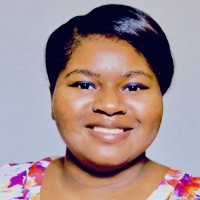If you were given the opportunity to change the world, what would you do? How would you go about it? Who would you get help from? For some people, the power to change the world does not reside in any physical tool, but in their own collection of life experiences within a complex child welfare system. Their ability to combine the knowledge they have gained from past experiences and an understanding of how systems should be intended to work develops their expertise.
North Carolina has a very diverse landscape ranging from the mountaintops of Boone, the military bases in Jacksonville, and the “urban goldilocks” setting of Charlotte. Similarly, our state has no shortage of great advocates and experts with lived experience who are forging a new way of how care for families is provided, supported, taught, and managed. They are the catalysts in spaces that influence our state system.
Like interconnected parts of woven threads, providing stability while sparking collaborative communal engagement is a byproduct of their work. Here are some specific ways North Carolina system experts are impacting and serving families:
Community Level Community Level
Foster Family Alliance of North Carolina (FFA-NC) understands the importance of having support for resource parents. As a parent, it is very easy to overlook your own needs while doing the best for your children. In August 2024, the organization began a mentorship model program for therapeutic foster parents. This a perfect example of how shifting the idea of experts not just existing outside of communities but within them can develop safety nets and build connections. For more information or to learn more about ways to get involved with this mentorship program, contact the Foster Family Alliance of North Carolina.
State Level
(also see “North Carolina’s Child Welfare Family Advisory Council” by Melissa Russell for more information about the North Carolina Child Welfare Family Advisory Council)
The North Carolina Child Welfare Family Advisory Council began in 2016 and is supported by a partnership with the NC Department of Social Services and N.C. State University. The council is a 12-member body with positions available to those who received and are directly impacted by child protective services.
Foster, adoptive, birth parents, kinship caregivers, and former foster youth serve as experts providing expertise on state design and planning teams, webinars, and conferences. The connectivity of intersectionality is frequently addressed because systems are never linear and neither are the services and programs created to support them. It also shows how council members are able to build capacity and share their knowledge because system navigation is not a straightforward experience.
Nationwide Impact
SAYSO has been a crucial partner for child welfare systemic change in North Carolina for almost 30 years. SAYSO of Children’s Home Society of NC partnered with the Jim Casey Youth Opportunities Initiative to create the United Stakeholders for Change workgroup to increase placement stability for youth in care. So far, in the spirit of collaboration, the group has managed to create and present implicit bias trainings, partner at community events serving as facilitators and panel experts, and develop and publish tools with recommendations for best practices for resource parents and social workers within independent living programs. The approach of gathering members within the child welfare sector is intentional and vital to connect resources and services to tackle placement instability.
Global Impact
In October of this year, the Kempe Center’s Call to Action Conference will be held virtually, and it will be an international affair. The purpose of the convening is to “bring radical and lasting change to the way child welfare systems work.” Opportunities for participants include learning about innovation for best practices, networking, and idea-sharing. For this conference, lived experience experts can not only can join for free, but they can also present at no cost.
I, along with many experts across the US and the globe, will be presenting workshops and webinars to inspire action. My session is titled “Collaborative Efforts for Change within Pregnant and Parenting Populations.” For this session I will be discussing how to utilize the five social determinants of health to better the child welfare system. If you would like to learn more about the session or are interested in seeing others, look for more information on the Kempe Center’s Call to Action Conference.
The wealth of know-how and its application within North Carolina is as vast as it is deep-rooted. Lived experience experts are pioneering true change and its chain reaction has no bounds. We can choose to ignore or we can adapt and grow from these efforts.
The last thought I want to leave with you is a small but mighty call to action that can be used daily.
Take five minutes to think about:
- 1. Your “Why” behind being involved in child welfare.
- 2. Who do you work with to accomplish your why?
- 3. Who is missing from that team? Why?
- 4. How can you support others and be supported in this process?
Lanitta Berry is a Child Welfare and Business Administration Consultant with lived experience in the foster care system


